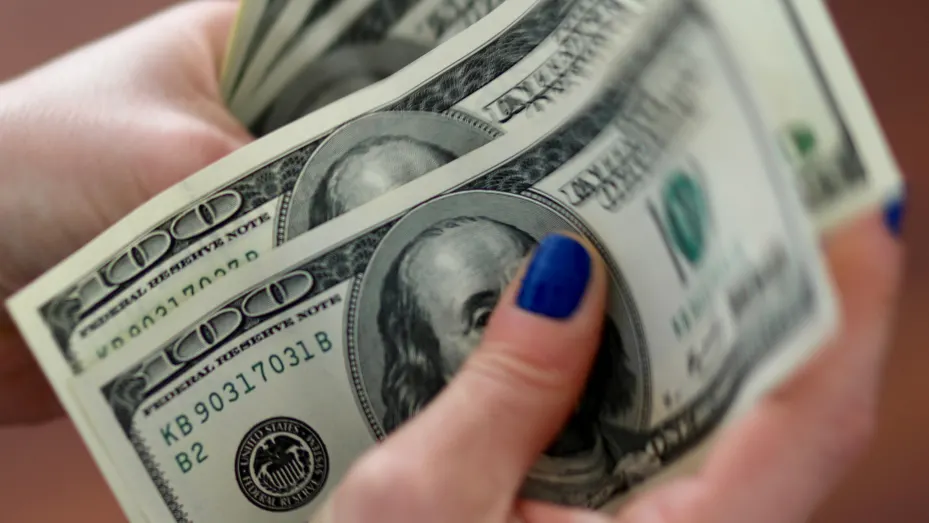By Harry Robertson and Kevin Buckland
The dollar ticked up on Wednesday after stronger-than-expected private sector jobs data, though it remained off a three-month peak, while bitcoin sat close to a record high as traders raised their bets on a Donald Trump victory in next week’s election.
Meanwhile, the pound fell on the day of the new Labour government’s first budget as British bonds rallied, while the euro wavered as inflation and growth data from the euro zone trickled in.
The U.S. dollar index , which measures the currency against six major rivals including the yen and euro, was last up 0.16% at 104.41. The dollar was flat at 153.15 yen .
The U.S. currency rose after data showed U.S. private payrolls growth surged in October, despite fears of temporary disruptions from hurricanes and strikes. The index rose to its highest since July 30 at 104.63 on Tuesday before finishing the day almost flat.
Separate data showed the U.S. economy grew at an annualised rate of 2.8% in the third quarter, slightly lower than the 3% expected by economists.
“On the whole, today’s data reaffirms that the U.S. is indeed still on course for a ‘soft landing’, with growth remaining resilient, as price pressures continue to subside,” said Michael Brown, senior research strategist at Pepperstone.
Mixed U.S. indicators overnight, showing a loosening U.S. jobs market but a confident consumer, provided little clarity on the outlook for Federal Reserve rates, allowing the greenback to drift lower with Treasury yields.
Recently though, economic readings have pointed to a resilient jobs market and economy, spurring traders to pare back their bets on rate cuts.
Both the dollar and U.S. bond yields have also been buoyed in recent days by rising speculation in markets and on some betting platforms for a victory in the Nov. 5 presidential election for Republican candidate Trump, whose tariff and immigration policies are seen as inflationary.
That helped leading cryptocurrency bitcoin surge to near its all-time high from March at $73,803.25, as Trump has vowed to make the United States “the crypto capital of the planet”.
The token last changed hands at about $72,026, after pushing as high as $73,609.88 in the previous session.
UK BUDGET
Sterling was last down 0.42% at $1.2961, after earlier touching a nine-day peak, as British finance minister Rachel Reeves delivered the Labour government’s first budget on Wednesday.
The pound was dragged lower by a drop in British bond yields, which have risen sharply in recent weeks.
Reeves, along with Prime Minister Keir Starmer, has reiterated the need for tough fiscal measures to help improve Britain’s public finances.
They are seeking to retain the confidence of investors, two years after then-prime minister Liz Truss’ tax-cutting plans sparked a crisis in the bond market.
“Today’s budget will be a clear focus,” said Jane Foley, head of FX strategy at Rabobank. “For Chancellor Reeves, PM Starmer, gilts, the pound and the whole UK economy, there is potentially a huge amount resting on this budget.”
The euro was last flat at $1.0814. It rose slightly after German growth and regional inflation data came in stronger than expected, causing traders to trim their bets on an outsized rate cut from the European Central Bank in December, but fell after the U.S. private payrolls data.
Separate figures on Wednesday showed the euro zone economy grew 0.4% in the third quarter, more than the 0.2% expected by economists.
The Aussie dollar dropped as low as $0.6537 for the first time since Aug. 8, after data showed inflation slowed to a 3-1/2-year low, before trading 0.2% weaker at $0.6573.
The Reserve Bank of Australia’s preferred inflation gauge, the trimmed mean measure, slowed to 3.5% from 4.0% in the third quarter, but service-sector inflation remained elevated.
Reuters

